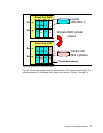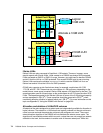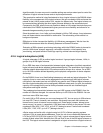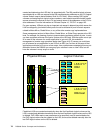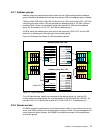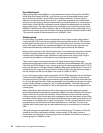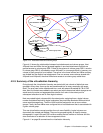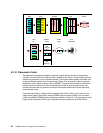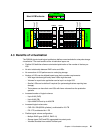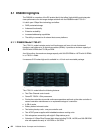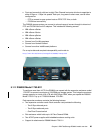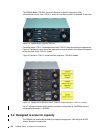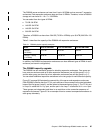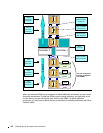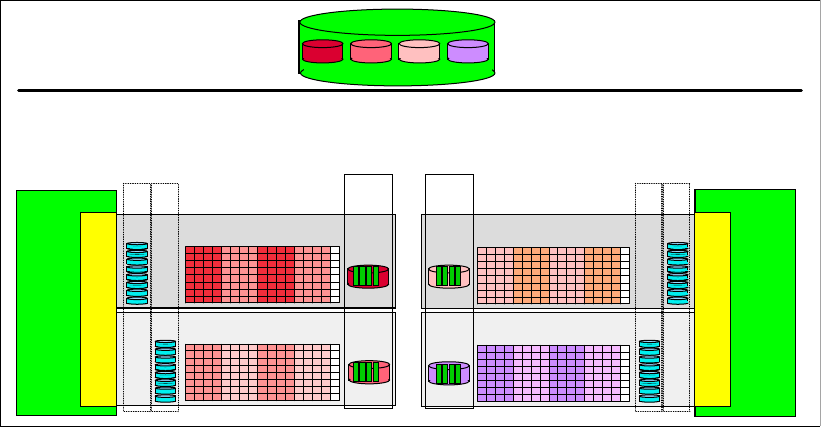
Chapter 4. Virtualization concepts 81
Figure 4-12 Optimal distribution of data
4.3 Benefits of virtualization
The DS6000 physical and logical architecture defines new standards for enterprise storage
virtualization. The main benefits of the virtualization layers are:
Flexible LSS definition allows maximization/optimization of the number of devices per
LSS.
No strict relationship between RAID ranks and LSSs.
No connection of LSS performance to underlying storage.
Number of LSSs can be defined based upon device number requirements:
– With larger devices significantly fewer LSSs might be used.
– Volumes for a particular application can be kept in a single LSS.
– Smaller LSSs can be defined if required (for systems/applications requiring less
storage).
– Test systems can have their own LSSs with fewer volumes than the production
systems.
Increased number of logical volumes:
– Up to 8192 (CKD)
– Up to 8192 (FB)
– Up to 4096 CKD and up to 4096 FB
Increased logical volume size:
– CKD: 55.6 GB (65520 cylinders), architected for 219 TB
– FB: 2 TB, architected for 1 PB
Flexible logical volume configuration:
– Multiple RAID types (RAID-5, RAID-10)
– Storage types (CKD and FB) aggregated into extent pools
– Volumes allocated from extents of extent pool
Server0
Server1
Extent Pool FB-1a
Extent Pool FB-0a
DA pair
DA pair
Host LVM volume
Extent Pool FB-1bExtent Pool FB-0b
Loop 1
Loop 2
Loop 2
Loop 1
LSS 00 LSS 01



